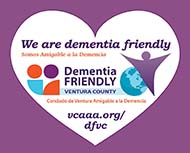By: Sherry Netherland, Director of Special Projects for Assisted Healthcare Services
I have worked with seniors and their healthcare issues for a long time. The best advice I can give you is don’t grow old. Don’t get me wrong, I am not advising you against aging, unless, of course, you have figured out how to stop the clock ticking. If you have, I’ll trade you winning lottery numbers! I am suggesting, however that you can age more slowly if you have a lifestyle of increased activity and proper nutrition. In the study, “Disuse and Aging,” Dr. Walter M. Bortz concluded, “at least a portion of the changes that are commonly attributed to aging are, in reality, caused by immobility. As such, they’re subject to correction by mobility – meaning activity and exercise.”
When discussing this article with one of my co-workers who is in her early 50’s, her response was, “Exercise? Ugh!” So, how do you convince someone, don’t be in your 60’s wishing you had taken better care of yourself in your 50’s? Even though this article is focusing on the need for exercise in the senior population how many of us younger than the mid-century mark are getting a head start on a fitness lifestyle? I don’t think there will be anyone reading this article who is not aware of the need to exercise more in order to stay fit, or get fit. Unfortunately, too many of us will wait until we have a health crisis to get the wake-up call.
Every study of exercising seniors demonstrates that they will report fewer chronic illnesses which may impair the quality of their lives. There is good news for couch potatoes though- it is never too late to start, and that remains true even for adults in their 60’s, 70’s, 80’ and 90’s.
A 1990 study, published by Dr. Maria Fiatarone, in the Journal of the American Medical Association, took 10 frail elderly men and women (aged 87-96 years old) all living in a nursing home and provided them with an intensive 8-week strength building program. At the end of the eight weeks, their leg strength tripled and their thigh muscles increased by more than 10%. There was a dramatic improvement in their perceived quality of life by increasing their independence and general feeling of well-being.
As we view our aging parents. How do we rate their independence along the continuum? For some, it’s staying active and continuing to live in their own home, for others it’s being able to feed themselves and go to the bathroom unassisted.
A common concern voiced by seniors is their desire not to be a burden to their children. If they are involved in a program of regular exercise this can be an achievable goal, because the key to any fitness program targeting seniors is achieving a maintaining functional independence. An exercise program can be specifically geared to improve balance and greatly reduce their risk of falling by strengthening the trunk and leg muscles. Imagine how beneficial leg strength is for seniors who need to get up in the middle of the night to use the bathroom. Not only could they get there in time, but strong thigh muscles will get them on and off the commode with ease.
We will all experience a reduction in reaction times with age. A regular fitness regimen can actually increase reaction times. This would be particularly important to those seniors who are still driving. Osteoporosis, commonly thought of as a condition of post-menopausal women, can also affect men. Weight bearing or resistance exercise can help reduce the risk of osteoporosis and has been proven to increase bone density. The benefits of weight resistance programs can also be achieved with pool exercise. The pool is a wonderful environment for safe, stable, weight resistance training, particularly for those seniors with balance concerns.
Exercise also increases lean muscle mass. With an increase in muscle mass comes an increase in metabolism which increases fat burning. There will also be an increase in aerobic capacity because you will have more muscles consuming oxygen, ergo, an increase in cardiovascular health.
If you are not currently engaged in an exercise routine, please consult with your physician before you begin. If you haven’t exercised in a long time, start small. Don’t risk injury. I can guarantee you that starting with even the simplest exercise, like walking around the block every day, will yield results.
So walk around the mall, take the stairs instead of the elevator. (Do I need to say quit smoking?) Experiment with different exercises. I have always believed that if you don’t like exercise it’s because you haven’t found something you like to do. When you find something you like and do it regularly, you can’t help but love the positive effects it will have on your appearance, mood, and health. Mr. Spock said, “live long and prosper.” I say, “Live long and healthy.”
If you are not currently engaged in an exercise routine, please consult with your physician before you begin. If you haven’t exercised in a long time, start small. Don’t risk injury. I can guarantee you that starting with even the simplest exercise, like walking around the block every day, will yield results.
So walk around the mall, take the stairs instead of the elevator. (Do I need to say quit smoking?) Experiment with different exercises. I have always believed that if you don’t like exercise it’s because you haven’t found something you like to do. When you find something you like and do it regularly, you can’t help but love the positive effects it will have on your appearance, mood, and health. Mr. Spock said, “live long and prosper.” I say, “Live long and healthy.”
Sherry Netherland is the Director of Special Projects for Assisted Healthcare Services, a Medicare certified, CHAP accredited home health agency with 7 branches in California and Arizona. She founded the Assisted Speakers Bureau and she speaks on a variety of healthcare related issues. To learn more about home health care and how Assisted can help, www.assisted1.com/home_health_care.







